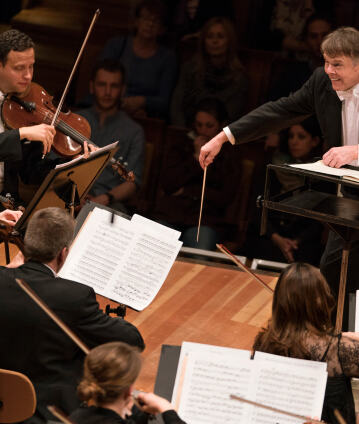Mariss Jansons dirige Sibelius, Weber et Bartók

Trois compositeurs, trois langages musicaux distincts : tel est le programme que proposent Mariss Jansons et le clarinettiste Andreas Ottensamer. La Symphonie n° 1 de Jean Sibelius contient déjà en germe son idiome caractéristique de musicien nordique. Le Concerto pour clarinette n° 1 de Weber conjugue une virtuosité stupéfiante à la cantilène romantique. Quant au Mandarin merveilleux de Béla Bartók, il réalise la fusion rare entre modernité radicale et sensualité sonore.
Berliner Philharmoniker
Mariss Jansons
Andreas Ottensamer
© 2017 Berlin Phil Media GmbH
Artistes
Nos suggestions
- Europakonzert 2017 à Chypre avec Mariss Jansons et Andreas Ottensamer
- Concert « Late Night » avec Simon Rattle et Katia et Marielle Labèque
- Mariss Jansons conducts music from the Austro-Hungarian Empire at the Waldbühne
- “World Encores” with Mariss Jansons and Vadim Repin at the Waldbühne
- Mariss Jansons conducts Verdi’s Requiem
- Mariss Jansons et Truls Mørk